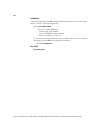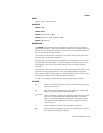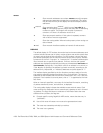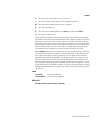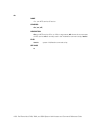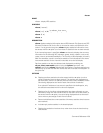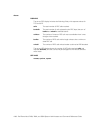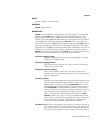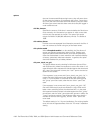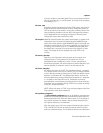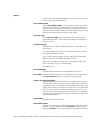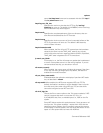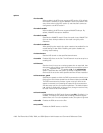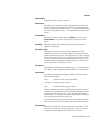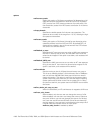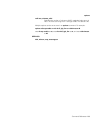
A-62 Dell PowerVault 720N, 740N, and 760N System Administrator and Command Reference Guide
the users lower-cased Windows login name, they will see a share
of that name (truncated to 12 characters) that is their home direc-
tory. Only the user can access the home directory using this share.
All other users cannot see the share name since they are logged in
under a different user.
cifs.idle_timeout
Specifies the amount of idle time in seconds before the filer discon-
nects a session. An idle session is a session in which a user does
not have any files opened on the filer. The value of this option
ranges from 600 to 4,000,000 (effectively infinite). The default is
1800.
cifs.netbios_aliases
Provides a comma-separated list of alternative names for the filer. A
user can connect to the filer using any of the listed names.
cifs.oplocks.enable
When cifs.oplocks.enable is on (the default), the filer allows cli-
ents to use oplocks (opportunistic locks) on files. Oplocks are a
significant performance enhancement, but have the potential to
cause lost cached data on some networks with impaired reliability
or latency, particularly wide-area networks. In general, this option
should be disabled only to isolate problems.
cifs.perm_check_use_gid
This option affects security checking for Windows clients of files
with UNIX security where the requestor is not the file owner. In all
cases Windows client requests are checked against the share-level
ACL, then if the requestor is owner, the user perms are used to
determine the access.
If the requestor is not owner and if perm_check_use_gid is on it
means files with UNIX security are checked using normal UNIX
rules, i.e. if the requestor is a member of the files owning group
the group perms are used, otherwise the other perms are
used.
If the requestor is not owner and if perm_check_use_gid is off,
files with UNIX security style are checked in a way which works
better when controlling access via share-level ACLs. In that case
the requestors desired access is checked against the files group
permissions, and the other permissions are ignored. In effect, the
group perms are used as if the Windows client were always a
member of the files owning group, and the other perms are
never used.
The default setting is on for new installations. For existing installa-
tions, this has the opposite effect of the old PC-mode installation
setting.
options



